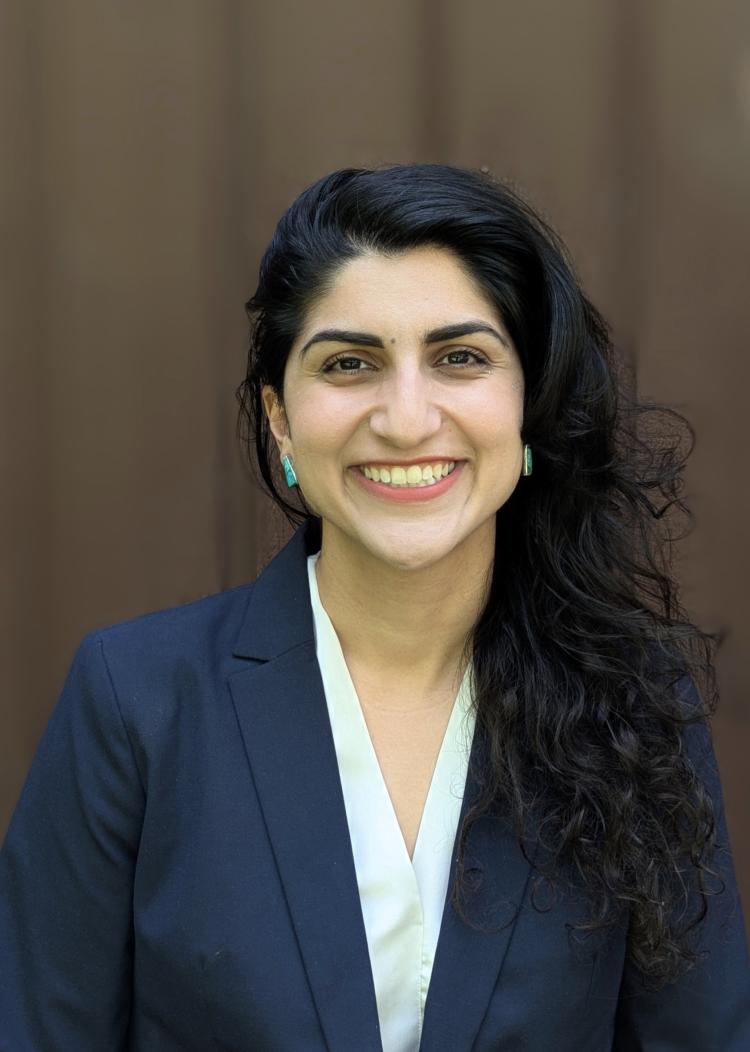Getting to Know Professor Delaram Takyar
Delaram Takyar is joining the Colorado Law faculty as an associate professor of law. Her research focuses on social inequality and the law, considering how the law contributes to the marginalization of disadvantaged groups. Her most recent article, The Hidden Price of Government Immunity, forthcoming in the U.C. Irvine Law Review, argues in favor of reforming government immunity laws, which, the article argues, disproportionately affect poor communities and communities of color.

Prior to joining the Colorado Law faculty, Takyar was a visiting scholar at Vanderbilt Law School. She was previously a Skadden fellow at the Tennessee Justice Center, where she started a medical-legal partnership that provided free legal services to pregnant and postpartum patients at a federally qualifying health center in Nashville. In that role, she also led an effort to develop self-help materials for pro se litigants in civil courts.
Takyar received her JD from Yale Law School, where she was student co-director of the San Francisco Affirmative Litigation Project and articles editor of the Yale Law and Policy Review. She received her Ph.D. in Sociology from New York University, where she wrote her dissertation about intergenerational economic mobility in the United States. She received her AB in Social Studies, with a secondary in Ethnicity, Migration, and Rights, from Harvard College.
Learn more about Professor Takyar in the Q&A below.
What excites you most about life in Colorado?
TD: My family and I are thrilled to be moving to a city that’s so close to the mountains and has such a thriving cultural scene. We have two young kids and can’t wait to take them hiking on weekends and to explore all the various arts festivals in town together.
Can you share a bit about any current projects you are working on?
TD: I have a paper coming out next winter about how government immunity laws disproportionately impact marginalized communities. I argue that these laws are often justified by citing economic and political benefits because they allow public officials to govern without “undue caution.” I show, however, that low-income communities and communities of color pay a disproportionate price to secure these purported benefits for all of society.
I’m also starting to work on a new project about how the access to justice movement should encompass more than just access to courts, especially considering increased safety concerns among immigrant communities about seeking court services.
How has your PhD in sociology helped inform your work as a legal scholar and teacher?
TD: Most of my research interests are informed by my perspective as a sociologist. I primarily write at the intersection of sociology and law, focusing especially on how the law affects marginalized communities. I also use sociological methods—both qualitative and quantitative—in my research. As a teacher, I’m really excited to bring a sociological perspective into the classroom. I’m teaching torts in the fall and plan to incorporate discussions about how tort law can be used to address various types of inequality. In the spring, I’ll be teaching poverty law and plan to incorporate sociological research into class discussions and readings to bring an on-the-ground perspective to the legal issues that we’re studying.
What drew you to pursuing a career focusing on social inequality and the law?
TD: My interest in social inequality started in college when I first began taking classes about poverty and race. I learned about topics such as mass incarceration, inequality in the healthcare system, and how cultural capital is differentially cultivated by parents based on class. That coursework drew me to pursuing a PhD in sociology, where I primarily researched and wrote about intergenerational economic mobility. As I progressed in my PhD program, I realized I wanted to think about sociological issues with a more acute focus on legal reform, which led to me pursuing a J.D.
What is your proudest career accomplishment so far?
TD: My proudest accomplishment as a lawyer has been establishing a new medical-legal partnership as a Skadden fellow in Tennessee. In that role, I worked with the Tennessee Justice Center and a federally qualified health center to bring free legal services to pregnant and postpartum patients and families with children in the state.
As a scholar, my proudest accomplishment was publishing my first piece of legal scholarship. It originated from an idea that I actually had in my first semester torts class. I slowly worked on it through law school and after graduating. It’s a paper about expanding the loss of chance doctrine to landlord-tenant cases and I was thrilled to share it more widely.
Professor Takyar will be presenting a talk titled "Access to Justice in Civil Courts," at Mini Law School on Sept. 24. Register here.


